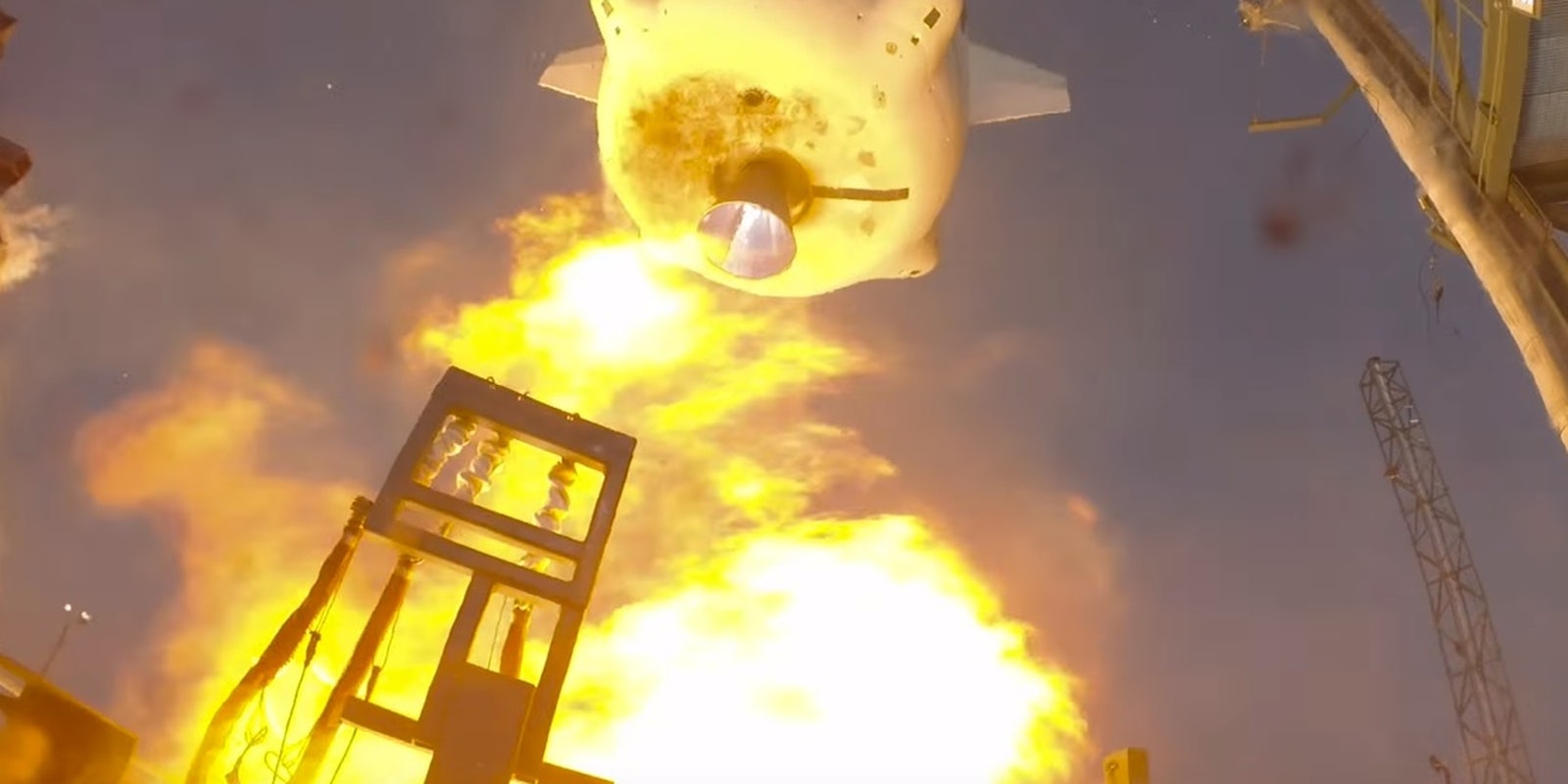You can check off one item from Jeff Bezos‘ holiday wish list: a reusable rocket. The Amazon founder’s private space firm successfully landed and recovered a rocket after launch.
On Monday, Blue Origin launched its New Shepard space vehicle, which reached an altitude of 329,839 feet (100.5 kilometers) before returning to Earth. The rocket was successfully landed at the West Texas launch site, making it the first of its kind to be soft-landed and remain intact after taking off into space; most rockets are destroyed or never recovered.
The landing was achieved by firing the BE-3 rocket as it was descending back to earth. The booster reignited as the rocket was just 5,000 feet from the ground, and the thrust delivered the controlled vertical landing at a speed of just over four miles per hour. The rocket will be able to be refueled and launched again in the future.
The achievement marks a victory for Blue Origin in the private space race, as Elon Musk’s SpaceX has been attempting and failing to soft-land its Falcon 9 rocket for the past year.
There appears to be no ill will between competitors, though; a SpaceX spokesperson told the Daily Dot, “We congratulate Blue Origin on the progress they’re making with vertical take-off and landing of their booster.” A similar sentiment was expressed by Elon Musk on Twitter following the announcement by his competitor.
Congrats to Jeff Bezos and the BO team for achieving VTOL on their booster
— Elon Musk (@elonmusk) November 24, 2015
However, Musk did take some time to play the role of wet blanket, noting the difference between getting to space and getting to orbit. The billionaire delivered some space shade to point out that rockets have successfully been recovered after reaching the altitude that Blue Origin’s New Shepard reached, including NASA’s North American X-15 and the commercial venture SpaceShipOne.
It is, however, important to clear up the difference between “space” and “orbit”, as described well by https://t.co/7PD42m37fZ
— Elon Musk (@elonmusk) November 24, 2015
Getting to space needs ~Mach 3, but GTO orbit requires ~Mach 30. The energy needed is the square, i.e. 9 units for space and 900 for orbit.
— Elon Musk (@elonmusk) November 24, 2015
Jeff maybe unaware SpaceX suborbital VTOL flight began 2013. Orbital water landing 2014. Orbital land landing next. https://t.co/S6WMRnEFY5
— Elon Musk (@elonmusk) November 24, 2015
But credit for 1st reusable suborbital rocket goes to X-15 https://t.co/LSb0f8FLJd
— Elon Musk (@elonmusk) November 24, 2015
And Burt Rutan for commercialhttps://t.co/TGWlNjsyQz
The case Musk makes is essentially that his company’s Falcon 9 rocket and Blue Origin’s New Shepard rocket are operating on different playing fields. Reaching orbit requires a Mach 30 velocity, or about 900 units of energy, while reaching space like Blue Origin’s reusable rocket did requires Mach 3 or about 9 units of energy.
That energy has to be accounted for and absorbed by a heat shield on reentry at the risk of the vehicle being vaporized, making the challenge of landing and recovering a rocket that reached orbit considerably more difficult than doing so for a rocket that reached space.
Even with Musk’s attempts to dampen the achievement, Blue Origin still can lay claim to the soft-landing achievement, which is no small feat for the company or for space travel as a whole.
H/T Engadget | Screencap via Blue Origin/YouTube


